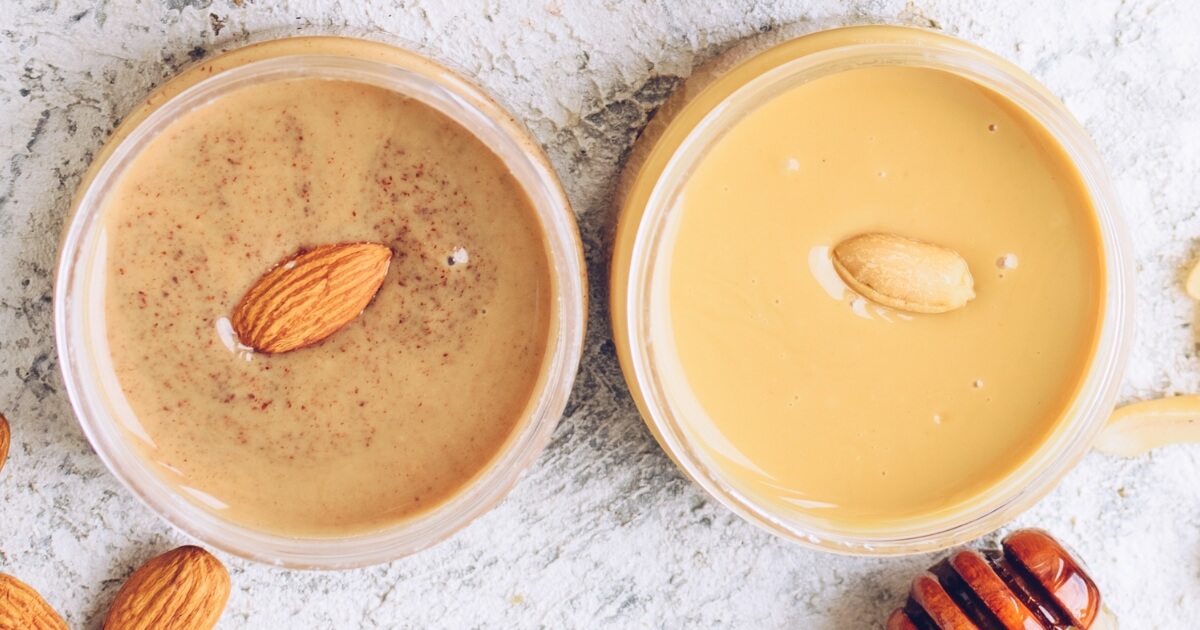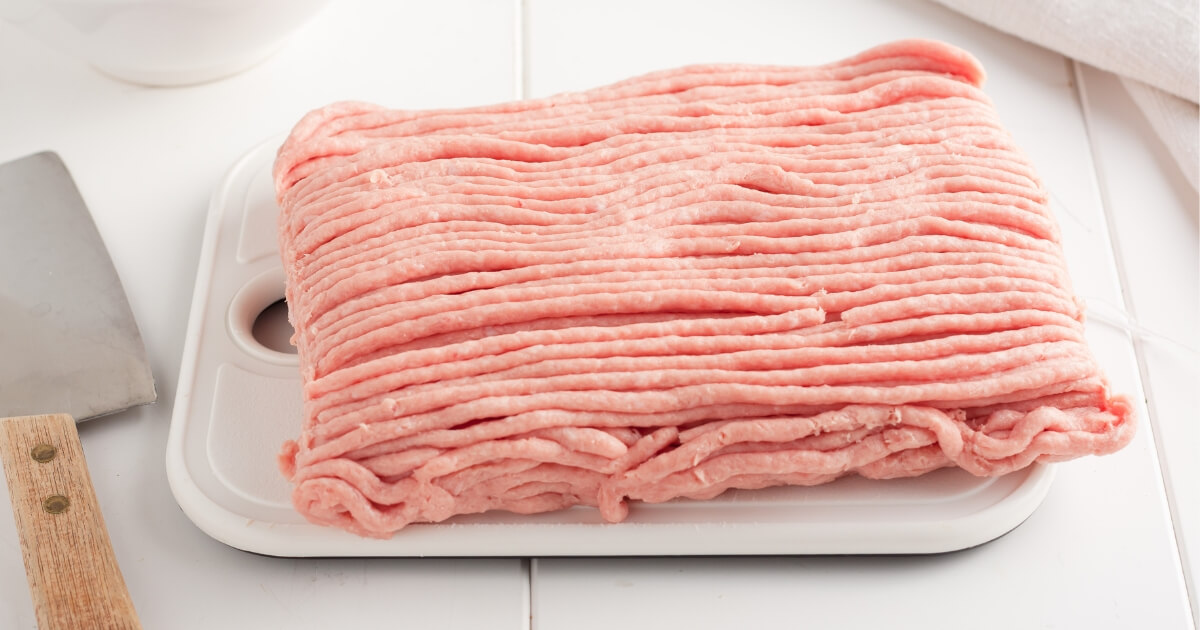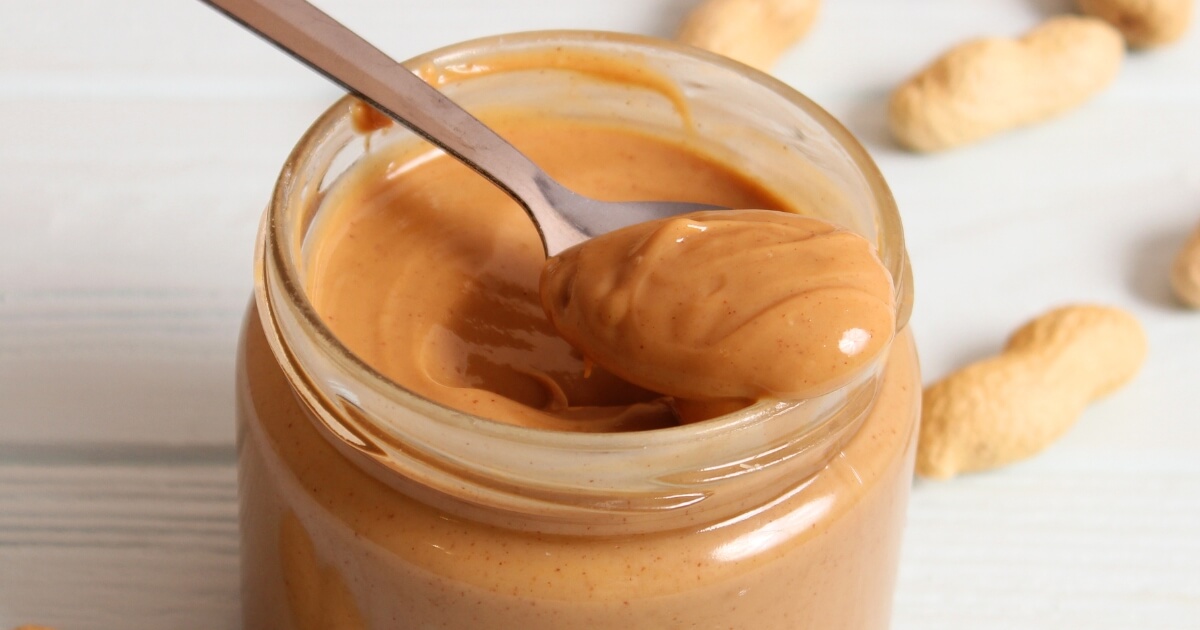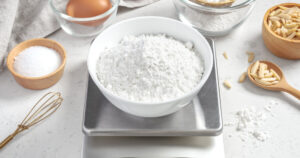You can buy hummus at most grocery stores or make it yourself using fresh ingredients. It’s a versatile snack that can be eaten with pita bread, vegetables, or even as a dip for chips or crackers. But how long does hummus last at home, does it need to be refrigerated, and how long can you leave it out?
Homemade hummus lacks the extra preservatives of commercial varieties, so it doesn’t last quite as long, about four to five days, versus store-bought hummus, which can last a week or more. Let’s dig into it further!
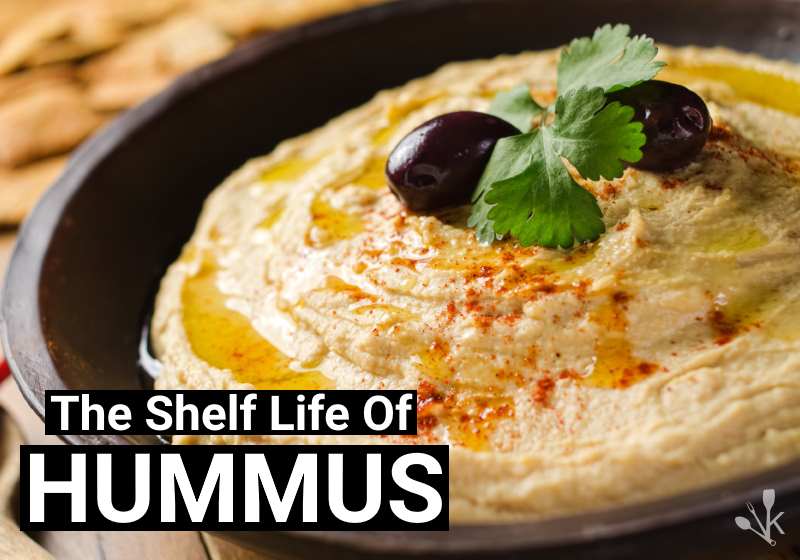
Does Hummus Need To Be Refrigerated?
Yes, homemade and store-bought hummus should always be refrigerated or kept chilled until ready to serve. Hummus can spoil quickly at room temperature, depending on the ingredients used, and could make you sick when left out too long.
I’ve always thought that both tahini and garlic get their flavor from the oils within them, and once mixed with other ingredients, these oils can go rancid at room temperature.
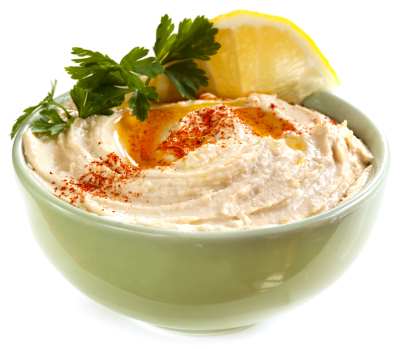
Home Chef Liora reached out to us about that and hummus expiration dates explaining,
It’s the combination of tahini and lemon juice which spoils the garlic! Notice that many store preparations do not contain tahini. Leaving out the tahini will let the hummus store much longer with little flavor change (other than we find that the garlic deepens and gets a bit stronger).
How Long Does Hummus Last In The Refrigerator?
Once opened, it’s best to consume store-bought or homemade hummus within three to five days when stored in the fridge. Store-bought hummus will have a use-by or best-by date, but that doesn’t mean it will spoil immediately after that date.
To get a few extra days from your hummus, store it in the coldest part of the fridge, away from the door.
Many store brands add extra salt or other preserving ingredients to their hummus to help it last a bit longer.
In my experience, unopened store-bought hummus should be good five to seven days past the printed date if stored in the fridge and depending on the ingredients. If it includes tahini, it’s best to use the date as your maximum.
How Long Does Homemade Hummus Last?
Homemade hummus should be stored in an airtight container in the coldest part of the fridge, where it should last about four to five days at best.
Hummus is easy to make at home and ensures you are getting super fresh and quality ingredients, as well as being able to tailor the recipe to your tastes.
But with these fresh ingredients and a lack of preservatives, it’s difficult to keep homemade hummus much longer.
If you find yourself stuck with leftover hummus, learn the signs of spoilage in our guide about how to tell if hummus is bad.
How Long Does Hummus Last After Opening?
Hummus will deteriorate more rapidly after opening as the ingredients start to oxidize. While it will last longer when stored in an airtight container, you really should eat it within one week of opening for full freshness and safety.
Drizzling a thin layer of olive oil over the surface of your opened hummus before sealing and storing it in the fridge may give you a few extra days as it helps reduce oxidization and keeps it nice and moist.
Make sure you always use a clean utensil when scooping out hummus to avoid contamination and more rapid spoiling.
How Long Can Hummus Sit Out?
While it is generally safe to eat hummus that has been sitting out at room temperature for up to two hours, after that, there is a risk of bacteria growth that could make you or your guests sick. Keep it chilled if possible to help prevent spoilage.
As an experienced host or hostess knows, food safety is an important consideration when serving snacks or a meal. This is especially true when it comes to dips and spreads, which are often left out at room temperature for extended periods of time.
So, if you’re planning on serving hummus at your next party, be sure to keep an eye on the clock. Once the two-hour mark has passed, it’s time to start packing up the leftovers.
Also, keep in mind that when stored in the fridge, hummus will get quite stiff and hard to stir after some time, making it difficult to scoop up.
So most people prefer to let their hummus “warm up” for half an hour before serving to let it relax, and the full flavor develops.
As long as it’s not sitting out in the sun or in an extremely hot kitchen, waiting 30 minutes before you dive in should be fine.
Furthermore, the dip should be kept covered to prevent contamination. By keeping it covered, you’ll prevent things such as dust, dirt, and hair from landing in your hummus.
Final Thoughts
Hummus is a traditional savory Mediterranean dish of chickpeas, tahini paste, garlic, olive oil, lemon, and spices that appear to be quite healthy. It’s a great dip for bread, crackers, chips, and vegetables.
In spite of featuring many naturally preserving ingredients like lemon, garlic, and sesame (a feature of tahini), hummus doesn’t last as long as you’d imagine.
Hummus recipes can vary greatly, so there may be a bit of wiggle room in the shelf life of certain products.
Recipes that have more lemon juice may last a bit longer than others with less, whereas specialty hummus with inclusions like spinach will spoil more quickly.
The garlic will be the deciding factor. Garlic gets sharper as it ages. While the tahini will go rancid over time, however, the zing of old garlic will destroy the flavor of hummus long before that.

